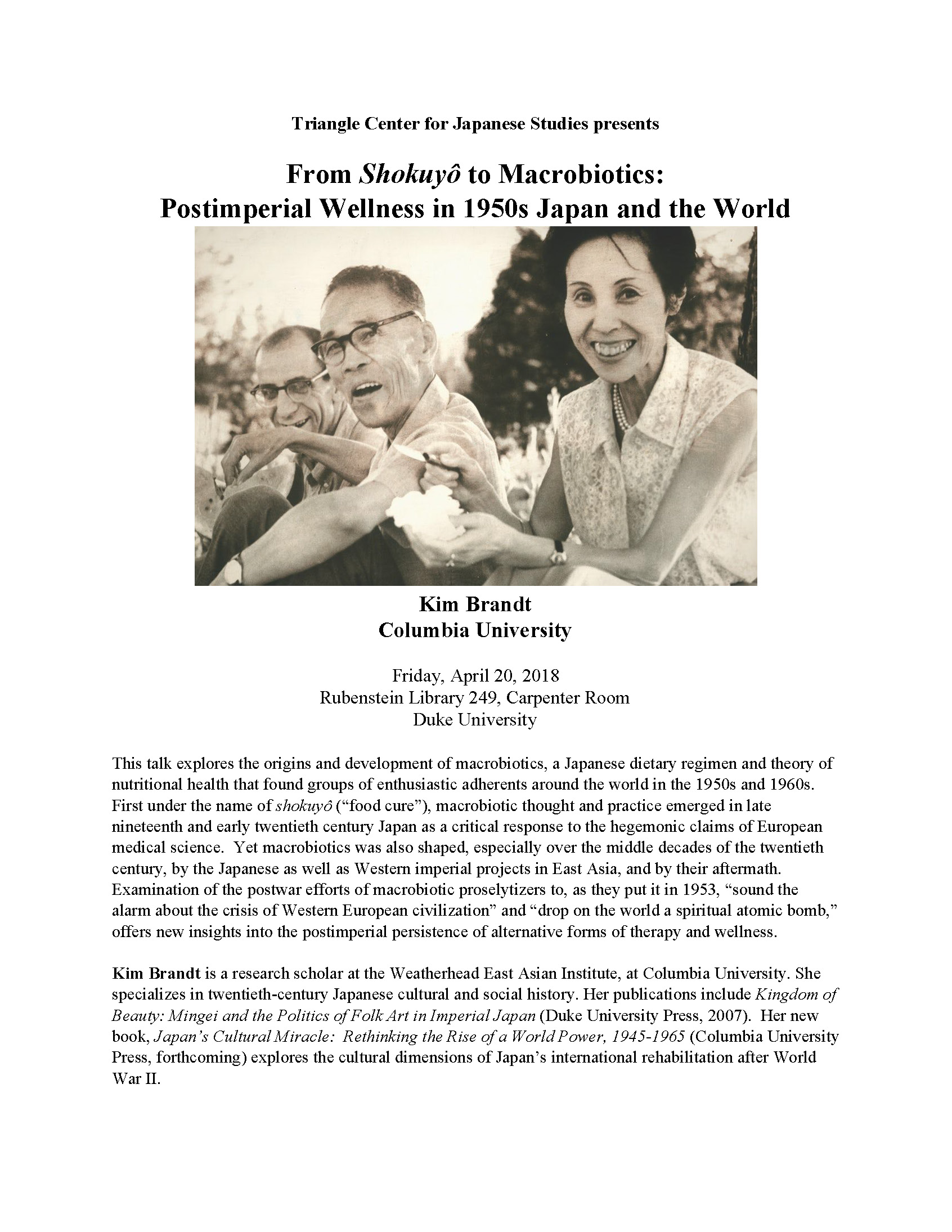
- This event has passed.
From Shokuyô to Macrobiotics: Postimperial Wellness in 1950s Japan and the World
April 20, 2018 @ 4:00 pm - 5:30 pm

About the speaker: Kim Brandt is a research scholar at the Weatherhead East Asian Institute, at Columbia University. She specializes in twentieth-century Japanese cultural and social history. Her publications include “Kingdom of Beauty: Mingei and the Politics of Folk Art in Imperial Japan” (Duke University Press, 2007). Her new book, “Japan’s Cultural Miracle: Rethinking the Rise of a World Power, 1945-1965” (Columbia University Press, forthcoming), explores the cultural dimensions of Japan’s international rehabilitation after WWII.
Related Events
The Carolina Asia Center supports diverse Asia-related events. However, CAC co-sponsorship of any talk, seminar, documentary screening, film screening, performance or celebration does not constitute endorsement of or agreement with the views presented therein. As an academic institution, we value diverse perspectives that promote dialogue and understanding.

